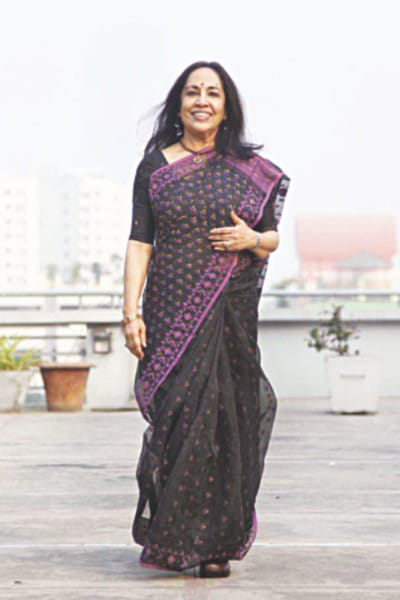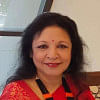Minu Haque- Patriotism Personified

In most common definitions of `patriotism,' we learn about people who went to war, who fought against their aggressors and who laid down their lives for the sake of the country. They are mostly the valiant soldiers, but rarely do we give the same credit to teachers, trainers, doctors, artists, philanthropists who have not only liberated the soil of the country but have also enriched the quality of the people by imbibing them with the spirit of education and livelihood.
In the true sense of the term Minu Haque is both a freedom fighter (qualifying for being called a patriot) and also a dancer. Yet, what I am trying to say is that, these are just two adjectives which only partially describe her. She is truly someone who works at the grass roots level, taking her mission as President of the Bangladesh Nrittya Shilip Shongstha to the remotest possible areas. `Why do you do that Minu? You can just be a dancer and charge high amounts, like many we know.' `Nashid, I want the youth of Bangladesh to learn dance, music and literature; practice in groups, keep physical fitness, lead their lives with discipline and elevate themselves to a certain level from where the attraction of drugs, criminal offence, and other negative diversions will be totally absent. If one is a dancer, choreographer, his/her entire life will be engulfed in the pursuit of perfection'.
She worked tirelessly and along with the support of Prof. Monzur Hossain and others was successful in establishing a department of dance in the Dhaka University.
A touch of her tireless efforts and her all-encompassing patriotic self was evident in the opening dance sequence in Bengal Classical Festival, held last November 2015. She started her dance with a `vandana' which is common in the South Indian `Bharat natyam' dance form and then, explains Minu, came her biggest vandana –that to the soil of our country, we saw the dancers dancing to the Tagore song `O amar desher mati, tomar pore thekai matha'. With this salutation the dancers (five from outside Dhaka) enthralled the audience with Minu's composition. A collage of all that she had learnt and stands for as a person.
As a child, she joined BTV as an artist and was learning from dancer Dulal Talukder. Later, she took part in rehearsals in Atikul Huq Chowdhury's home (held for freedom fighters). She crossed the border and in 1971 served as a nurse in Agartala (Field Sector 2), India.
Upon her return to Bangladesh, she finished her bachelors in Psychology and also learnt in Bulbul Academy of Fine Arts (BAFA). She went abroad in cultural tours as a delegate both before the birth of Bangladesh and after. In 1982, she had the honour of dancing in front of Indira Gandhi, and among others were Jyoti Basu who brought the Bengali curd for his guests in Delhi. She worked in the Performing Arts Academy from 1977 to 1981. She started learning Odyssey from some expats who happened to be in Bangladesh. She started her own dance school named `Pallavi Dance Centre' with incessant enthuse from her better half Shahudul Haque. Along with other artists she also started an association of dancers titled `Nrittyadhara' (1991). Her thirst to form associations and spread dance all over Bangladesh, love and contribute to the country through the process all converged like a centrifugal force in the last portion of the opening dance number in the Bengal Festival. It ended with the song `Ekti Bangladesh tumi jagroto jonotar' and the lights became green with a centre spot of red. Our national flag, the emblem of our patriotism. Thank you Minu Haque for truly depicting our inner salutation through dance.
The writer is an academic, Nazrul exponent and eminent writer.

 For all latest news, follow The Daily Star's Google News channel.
For all latest news, follow The Daily Star's Google News channel. 



Comments